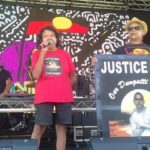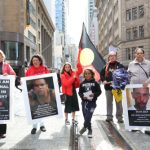When Can a Coronial Inquest Be Held in New South Wales?

Family members of missing backpacker Theo Hayez are on their way to Australia to attend the Coroner’s Inquest into the young man’s disappearance, which is due to begin later this month.
Theo was at the end of a six-month holiday around Australia when he went out for a drink on 31 May with a friend in Byron Bay, never to be seen again.
Despite a long and intensive police investigation and several massive land and sea searches of the Northern Rivers area and the North Coast, the young man’s disappearance remains a mystery.
The search for Theo did, however, lead police to the remains of a young woman, Thea Liddle, who had been living a transient lifestyle when she disappeared from the Northern Rivers area in October 2019.
Police believe the two cases could be linked, and may also be connected to the drug trade in the region.
Fresh evidence
New information about the disappearance of Theo Hayez came to light just a few months ago, and it will be presented to the coronial inquest.
The evidence includes geospatial positioning and raw data which shows every search Theo made on his phone on the night of his disappearance.
The data has been able to pinpoint all of Theo’s last known locations, charting every step he took, or every movement of his phone, until it ran out of battery.
While the coronial inquest may not be able to provide Theo’s family with all of the answers they need, it will provide them with information about some of the circumstances of their loved-one’s disappearance.
Why a Coronial Inquest?
Coronial inquests most often occur when there is evidence of death in suspicious circumstances.
However, the Coroners Court of New South Wales has a much wider jurisdiction than this, and is empowered to inquire into:
- Suspicious or sudden deaths,
- Suspected deaths,
- Fires and explosions,
- Deaths in custody and during police operations, and
- Deaths of children and the disabled.
Some recent incidents which have triggered coronial inquests in our state include:
- The 2019 police killing of schizophrenic man Todd McKenzie,
- The death of young people who had taken drugs at Music Festivals in NSW, and
- The fatal shooting of Jack and Jennifer Edwards by their father in 2018.
‘Suspected deaths’ and ‘reportable deaths’
Under section 21 of the Coroners Act 2009 (which superseded the Coroners Act 1980), an inquest can be held in the case of a death or a suspected death, including in cases of missing persons presumed to be deceased.
The section provides that a coroner may undertake an inquest concerning the death or suspected death of a person if it appears that:
- the person’s death is (or there is reasonable cause to suspect that the person’s death is) a reportable death, or
- a medical practitioner has not given (or there is reasonable cause to suspect that a medical practitioner has not given) a certificate as to the cause of death.
Section 6 of the Act defines a ‘reportable death’ as one where:
- the person died a violent or unnatural death,
- the person died a sudden death the cause of which is unknown,
- the person died under suspicious or unusual circumstances,
- the person died in circumstances where the person’s death was not the reasonably expected outcome of a health-related procedure carried out in relation to the person, or
- the person died while in or temporarily absent from a declared mental health facility and while the person was a patient at the facility for the purpose of receiving care, treatment or assistance.
Deaths in custody and police operations
Section 23 of the Act empowers the Coroner to hold an inquest concerning the death or suspected death of a person if it appears that he or she has died, or there is reasonable cause to suspect he or she has died:
- while in the custody of a police officer or in other lawful custody,
- while escaping, or attempting to escape, from the custody of a police officer or other lawful custody,
- as a result of police operations,
- while in, or temporarily absent from, a detention centre for young persons, a correctional centre or a lock-up, or
- while proceeding to an institution or place referred to above for the purpose of being admitted as an inmate and while in the company of a police officer or other official charged with the person’s care or custody.
A ‘police operation’ is defined as any activity engaged in by a police officer while exercising his or her functions, other than an activity for the purpose of a search and rescue operation.
Deaths of children and the disabled
Section 24 of the Act empowers the Coroner to to hold an inquest concerning the death or suspected death of a person if it appears that he or she was, or there is reasonable cause to suspect that he or she was:
- a child in care,
- a child for whom a report was made under Part 2 of Chapter 3 of the Children and Young Persons (Care and Protection) Act 1998 within the period of 3 years immediately preceding the child’s death,
- a child who is a sibling of a child in respect of whom a report was made under Part 2 of Chapter 3 of the Children and Young Persons (Care and Protection) Act 1998 within the period of 3 years immediately preceding the child’s death,
- a child whose death is or may be due to abuse or neglect or that occurs in suspicious circumstances,
- a person (whether or not a child) who, at the time of the person’s death, was living in, or was temporarily absent from, supported group accommodation or an assisted boarding house,
- a person (other than a child in care) who is a person in the target group within the meaning of the Disability Inclusion Act 2014 who receives from a service provider assistance (of a kind prescribed by the regulations) to enable the person to live independently in the community.
The section further provides that if jurisdiction to hold an inquest concerning the death of a child arises, the Coroner must use his or her best endeavours to notify the following persons of any right that they have to legal representation at the inquest:
- the persons having parental responsibility for the child,
- the child’s parents (if they do not have that responsibility), and
- such family members as would be reasonably expected to have an immediate interest in the outcome of the inquest.
A ‘child is defined as a person under the age of 18 years.
Police obligation to report missing person
The police officer in charge of a missing person investigation has a duty to report a missing person’s case to the Coroner once they are satisfied that no further enquiries can be made to determine whether a missing person is alive or deceased.
Coronial Inquests are often held at the Coroner’s Court in Lidcombe in Sydney, but the State Coroner and Deputy State Coroners also travel to regional courthouses to conduct inquests when required.
Local Court magistrates in their capacity as Coroners can also conduct inquests in regional areas.
Powers of the Coroner’s Court
Coronial inquests are similar to other court proceedings in that the Coroner may summon or subpoena witnesses. The Coroner’s Court also has the power of arrest, the power to administer oaths, and the power to sequester juries of six people during inquests.
A Coroner’s Court may also:
- Authorise a police officer or other person to enter any place and gather evidence, similar to a search warrant
- Retain possession of the body of a person, or the organs of a body of a person whose death is reportable to the Coroner. In these cases burials or cremations must only be authorised by the coroner.
- Exhume a body for the purposes of a post-mortem examination
The power to make recommendations and refer cases for criminal prosecution
Coroners produce a Coroner’s Report at the end of a hearing, in which they are able to make specific recommendations for change or improvement to governments and other agencies.
While the Coroner does not have the power to enforce compliance with any of the recommendations it makes since July 2009, responses by government ministers and agencies to coronial recommendations have been published by the Department of Justice.
Similarly, a coroner cannot find someone guilty of a crime. However, it at any time during the course of a coronial inquest the Coroner determines that a person may have committed an indictable offence in connection with the inquiry, then the Coroner is required to suspend the inquiry and refer the matter to the Director of Public Prosecutions (DPP) who will examine all of the information and decide whether charges should be laid against the person.
A Coroner cannot determine civil liability either, although a Coroner’s findings, as detailed in the written report following a coronial inquest, can be relied upon in subsequent civil proceedings.








